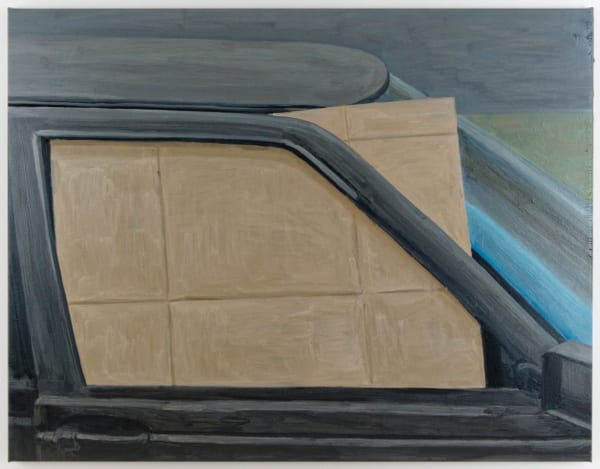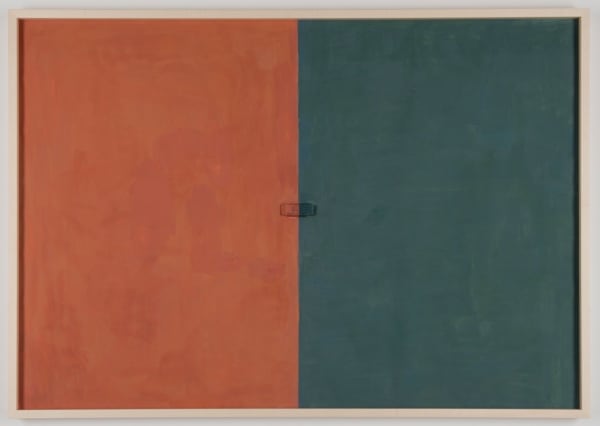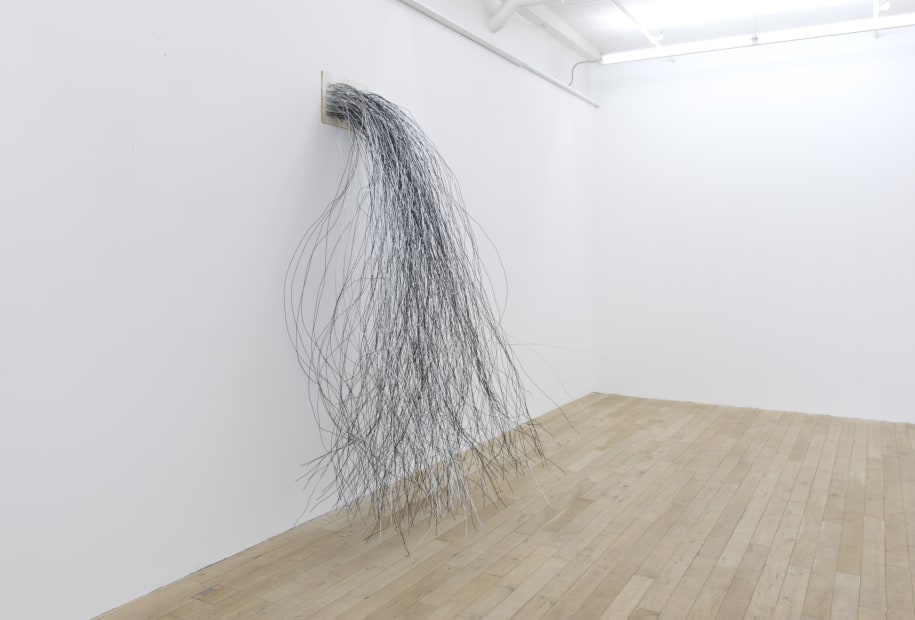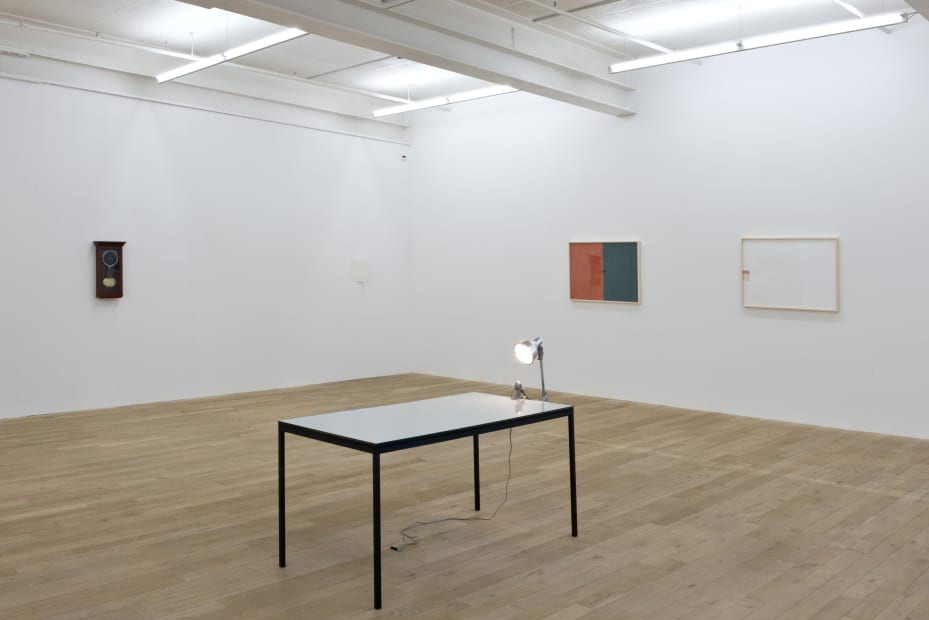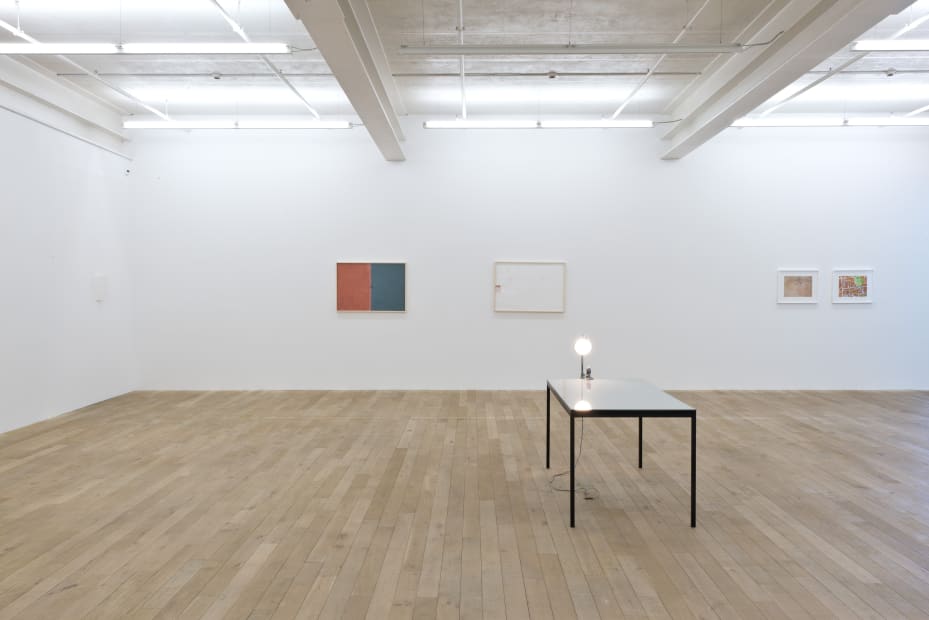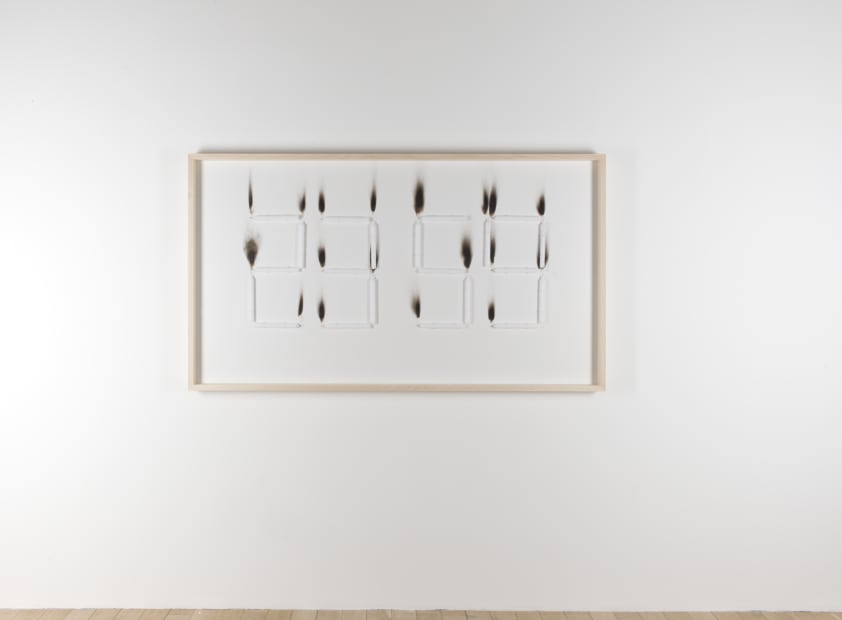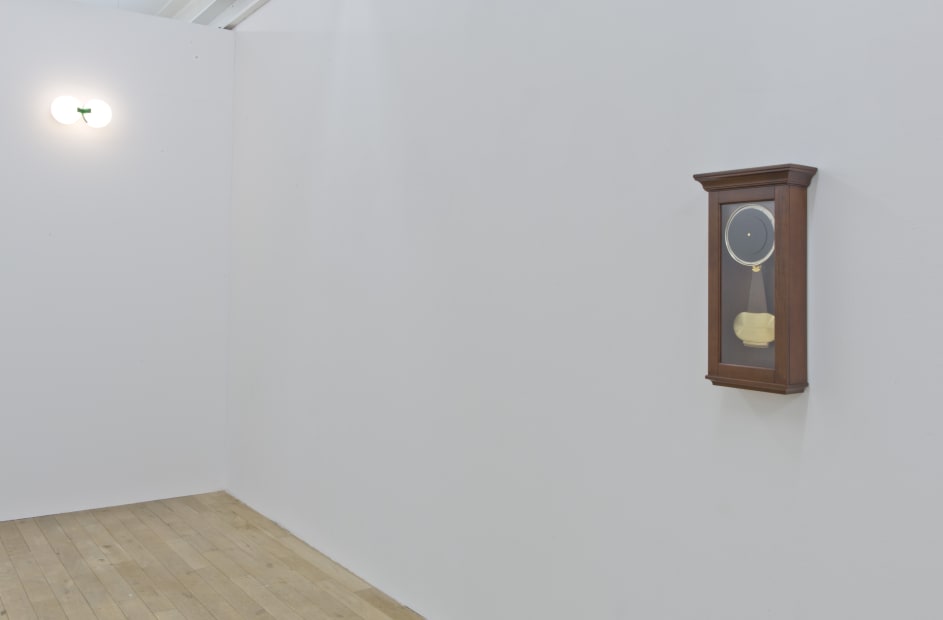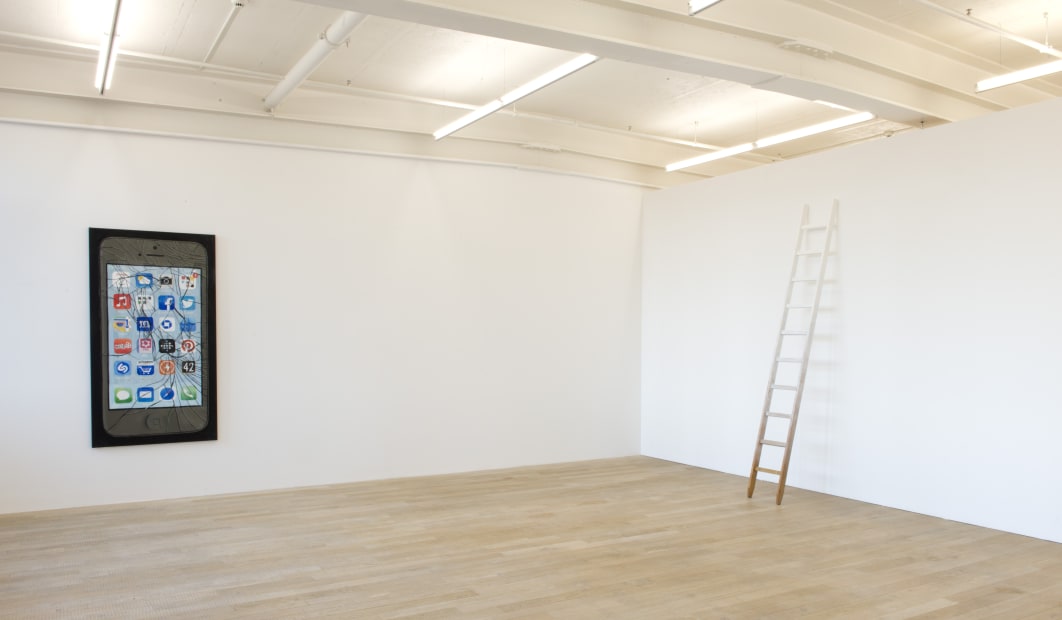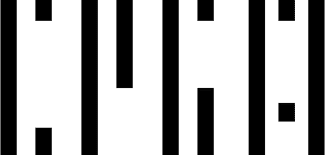Jorge Macchi: MikrokosmosGalerie Peter Kilchmann, Zahnradstrasse, Zurich
Galerie Peter Kilchmann is pleased to present its fourth solo exhibition by Argentinean artist Jorge Macchi. Born in Buenos Aires in 1963, the Argentinean capital remains still today the pivotal center of his artistic work. Representing the diversity of media in Macchi‘s oeuvre, the show displays in a challenging manner a selection of paintings, installations, works on paper and photographic works.
April 7 - May 27, 2017
-
 Jorge MacchiLínea y punto (Line against Point), 2017Iron wire, galvanized iron wire, paper270 x 200 x 165 cm (106.3 x 78.7 x 65.0 in.)Unique
Jorge MacchiLínea y punto (Line against Point), 2017Iron wire, galvanized iron wire, paper270 x 200 x 165 cm (106.3 x 78.7 x 65.0 in.)Unique -
 Jorge MacchiLadder, 2017Wooden ladder, paint287 x 38.5 x 80 cm (113.0 x 15.2 x 31.5 in.)
Jorge MacchiLadder, 2017Wooden ladder, paint287 x 38.5 x 80 cm (113.0 x 15.2 x 31.5 in.)
Object: 296 x 38.5 x 6.5 cm -
 Jorge MacchiMare Marginis, 2017Lamp, glass, paper, wood, iron111 x 182.5 x 80 cm (43.7 x 71.9 x 31.5 in.)Unique
Jorge MacchiMare Marginis, 2017Lamp, glass, paper, wood, iron111 x 182.5 x 80 cm (43.7 x 71.9 x 31.5 in.)Unique -
 Jorge MacchiThe Book of Hours, 2015Wood, metal, glass62 x 33 x 14 cm (24.4 x 13.0 x 5.5 in.)Ed. of 3
Jorge MacchiThe Book of Hours, 2015Wood, metal, glass62 x 33 x 14 cm (24.4 x 13.0 x 5.5 in.)Ed. of 3 -
 Jorge MacchiIconoclasta, 2016Oil on canvas196.5 x 106.5 cm (77.4 x 41.9 in.)
Jorge MacchiIconoclasta, 2016Oil on canvas196.5 x 106.5 cm (77.4 x 41.9 in.) -
 Jorge MacchiD, 2016Oil on canvas49.5 x 34 cm (19.5 x 13.4 in.)
Jorge MacchiD, 2016Oil on canvas49.5 x 34 cm (19.5 x 13.4 in.) -
 Jorge MacchiCardboard, 2016Oil on canvas90.5 x 114 cm (35.6 x 44.9 in.)
Jorge MacchiCardboard, 2016Oil on canvas90.5 x 114 cm (35.6 x 44.9 in.) -
 Jorge MacchiWi Fi, 2017Oil on canvas33.5 x 41.5 cm (13.2 x 16.3 in.)
Jorge MacchiWi Fi, 2017Oil on canvas33.5 x 41.5 cm (13.2 x 16.3 in.) -
 Jorge MacchiDos banderas (Two Flags), 2017Gouache on paper and eraser60 x 90 cm (23.6 x 35.4 in.)
Jorge MacchiDos banderas (Two Flags), 2017Gouache on paper and eraser60 x 90 cm (23.6 x 35.4 in.)
72 x 102 cm (28.3 x 40.2 in.), framed -
 Jorge MacchiDiáspora, 2016Collage on print40 x 27 cm (15.7 x 10.6 in.)Unique, Nr. 43/48
Jorge MacchiDiáspora, 2016Collage on print40 x 27 cm (15.7 x 10.6 in.)Unique, Nr. 43/48 -
 Jorge MacchiDiáspora, 2016Collage on print40 x 27 cm (15.7 x 10.6 in.)Unique, Nr. 3/48
Jorge MacchiDiáspora, 2016Collage on print40 x 27 cm (15.7 x 10.6 in.)Unique, Nr. 3/48 -
 Jorge MacchiDiáspora, 2016Collage on print40 x 27 cm (15.7 x 10.6 in.)Unique, Nr. 31/48
Jorge MacchiDiáspora, 2016Collage on print40 x 27 cm (15.7 x 10.6 in.)Unique, Nr. 31/48






